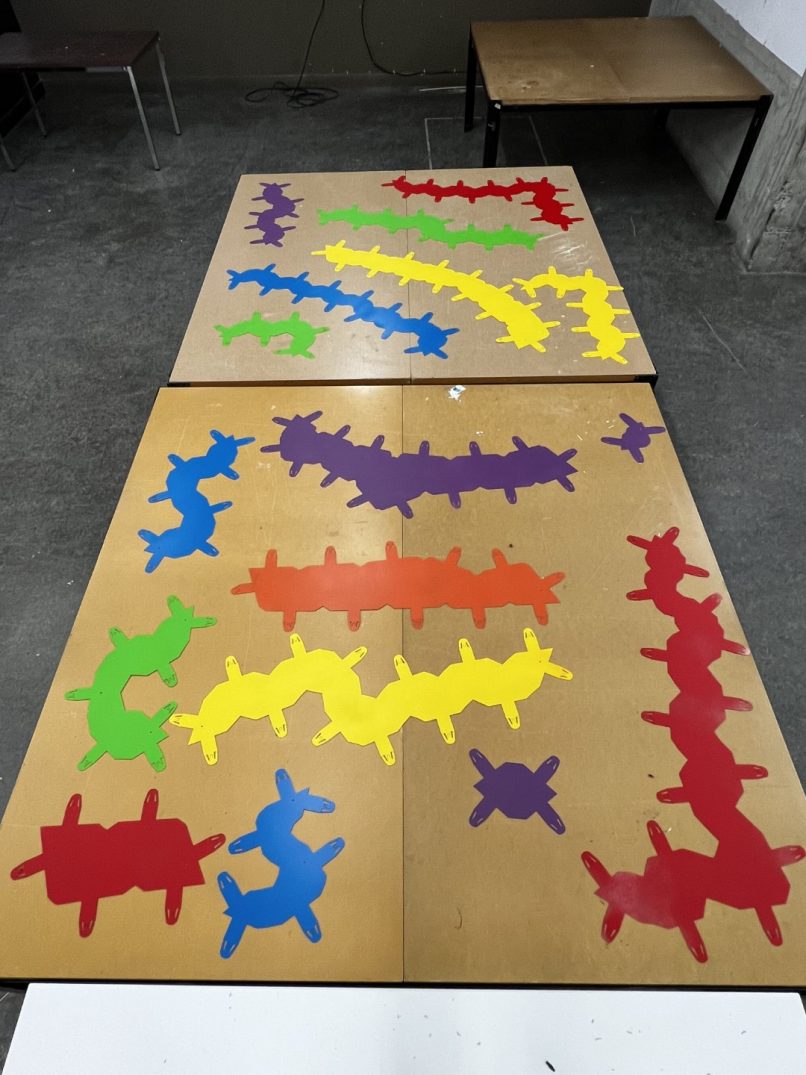Cnidaria is a research pavilion developed in the ARC 6801 H research studio of the School of Architecture at the Université de Montréal in winter 2024, and consists of two parts: a shell and a seating area.
The shell is a double membrane with a surface area of 25 m² in aluminium sheet, produced using an innovative construction method for architectural, curved and long-span surfaces. The method is based on manual folding and interlocking assembly. Its design, inspired by sea anemones and sound-focusing acoustic shells, derives from a soap-bubble membrane simulation that optimizes the use of materials by distributing structural stresses evenly over the surface.
The outer layer acts as a structural and aesthetic membrane, providing shelter and managing axial loads. The sparsely arranged inner layer manages bending and shear stresses, with a biologically inspired pattern that educates and enhances aesthetics. This approach combines lightweight aesthetic qualities with structural integrity, thanks to an innovative interlocking connection that enables easy assembly without inter-layer access.
The seating is composed of a dozen chairs with customized geometry produced by two different technologies. The support system is an optimized structural network of steel rods linked by nodes produced by 3D printing. The seat interface is a series of double-curvature foam cushions produced by robotic milling. The geometry of the cushions is optimized to acquire different poses of the human body.
On the digital side, Anemone uses innovative state-of-the-art algorithms to efficiently segment complex curved geometries into non-overlapping, conflict-free strips, streamlining the design process. It also serves as a projection screen for digital art, underlining its dual function as an electronic arts venue.
Cnidaria was built with support from Université de Montréal School of Architecture, the Fonds de recherche du Québec and the Natural Sciences and Engineering Research Council of Canada. Fabrication partner Industries B37.
Scroll down for more images.

























